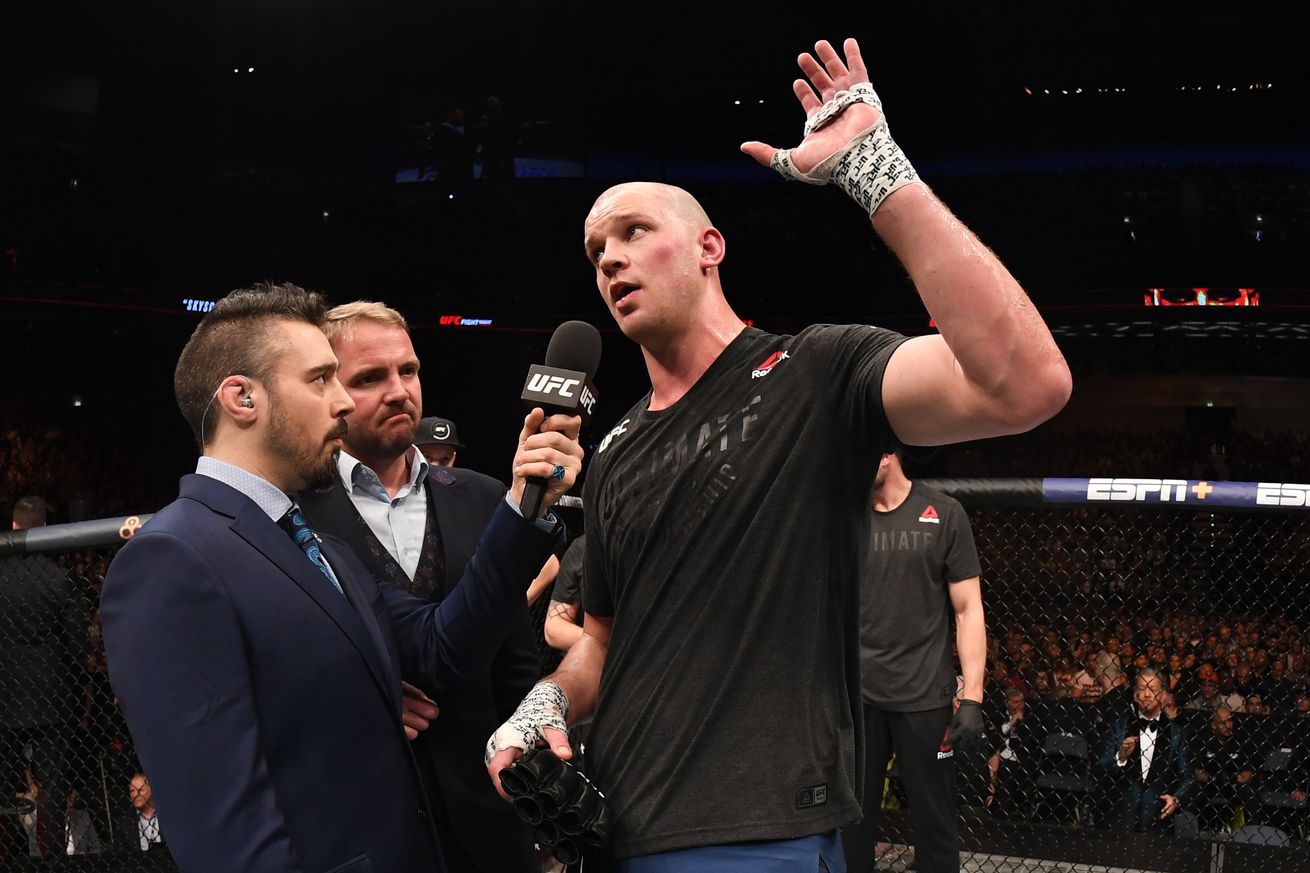
Like almost every other MMA fighter who retires from competition, Stefan Struve definitely contemplated a comeback.
Thanks in large part to a disappointing end to his career after falling to Tai Tuivasa at UFC 254 — a fight he openly admits he shouldn’t have taken — the now 35-year-old heavyweight pondered momentarily about making his return. It turns out, Struve, who was the first fighter to hand Stipe Miocic a defeat, had similar feelings the last time he considered retirement in 2019, except this time around there was a stark contrast that made him realize he was better off being done with fighting.
“It went through my head a whole bunch of times to fight again, but after my fight in Prague in 2019 when I first said I was going to retire, the difference was I continued to train,” Struve told MMA Fighting. “One week after, I was in the gym again because it’s routine. It’s what we do.
“Then after the fight with Tuivasa that I lost, I also had the health scare earlier that year, which messed up my vestibular organ in my ear and I shouldn’t have fought that fight. But it was such a crazy time with the pandemic and I had a bunch of fights scheduled that year that were moved or cancelled. Six weeks before my fight with Tai, my son was born and I wanted to get a paycheck. As simple as that. I was still dealing with vertigo issues. It was stupid to go fight. After that fight, I barely trained. Just to stay healthy, but that definitely helped to make the right decision, especially for my long-term health, which is excellent right now.”
Despite his retirement, Struve still wanted to be an active participant in MMA, but he knew almost immediately that opening a gym of his own wasn’t a viable option.
“Most fighters start their own gym, but that didn’t feel like the right step for me,” Struve said. “Because I spent so much time in the gym and I still teach a couple days a week, a couple hours a week, but if I had to be in the gym as much as I was in the past, that wouldn’t make me happy.”
Rather than own a gym, Struve started getting involved in the sport behind the microphone by calling fights as part of a broadcast team, and he even got the opportunity to interview fighters at major events including the UFC.
According to Struve, the idea was pitched to him by a television network in the Netherlands who liked the idea of a former fighter interviewing other athletes, which would hopefully offer a different kind of perspective during questions and answers.
“They asked me if I could do it. I said, ‘Yeah, I’ll give it a try,’” Struve said. “People seem to like it. It was definitely weird starting but I got familiar with it pretty fast. I don’t think it’s the job I’m best at. I think I’m better at commentating and analyzing. It’s fun to do.”
As far as his commentary gigs, Struve really enjoys that job, although there are definitely challenges there as well — particularly because he often switches back and forth between doing English and Dutch broadcasts depending on where he’s needed.
He’s also had to learn the art of critical analysis, which is a necessary part of color commentary, even though some fighters are apt to get offended by what’s said about their performances.
Numerous UFC fighters have called out veteran commentators like Daniel Cormier and Michael Bisping for their words during broadcasts, and Struve was cognizant that backlash like that was probably inevitable.
“You try to analyze and be objective, of course,” Struve said. “So far people really like my view on it. You definitely learn along the way and also how to say certain things so it doesn’t feel like criticizing as much, but rather analyzing. But sometimes you’ve got to be harsh if people make mistakes.
“MMA is just like every other sport. If there is no mistakes, it’s going to be a boring night. I’ve made mistakes, I can deal with it. I would deal with criticism and every now and again, especially after you lose a fight. It can be tough to deal with. At the end of the day, I think so far I’m doing pretty good.”
Next up for Struve is calling Friday’s Titan FC 82 card from Serbia, where local favorite and undefeated prospect Predrag Bogdanovic takes on UFC veteran and ex-Bellator champion Will Brooks in the main event.
Struve will not only work the broadcast, but he actually put on yet another hat by becoming a part-time matchmaker alongside Lex McMahon, who was his manager during his fighting career and now serves as the Chief Operating Officer at Titan FC.
After dealing with UFC matchmakers like Joe Silva for most of his career, Struve got a taste of how difficult that job could be, especially when he helped book a marquee heavyweight title fight on the card.
“Lex had a couple of fighters he uses a lot and he was looking for opponents for them, and we had a couple of names and it didn’t really work out,” Struve said. “Then I asked my network for some options and we found some guys who were really good, and it’s different when I reach out versus somebody they don’t know. You get better answers when somebody like me reaches out. You go to Europe, it’s a huge opportunity for these guys to fight on UFC Fight Pass, because there’s not a lot of shows in Europe that are shown on Fight Pass. One of the guys I got was Johnny Walker’s little brother Valter Ignacio, who is fighting for the heavyweight belt against Alex Nicholson. He actually trains at a gym in Moscow.
“I reached out to his coach, we started talking, we had a conversation and I told him about the event and we were interested in having Valter fight, and within a couple of hours we had the fight signed.”
Because Ignacio trains in Russia, where sanctions due to the invasion into Ukraine have made travel out of the country much more difficult, Struve realized that his responsibilities would go far beyond just booking the fight.
“All of the flights coming from Moscow to Europe are blocked for us, so it’s not easy to find flights,” Struve said. “I had to get into that as well and sort it out for those guys. In the end, I think we’ve got some really cool matchups.”
Struve admits that matchmaking probably won’t be a full-time occupation for him any time in the near future because he prefers doing commentary, but it was fun to play that part while working with Titan FC and Serbia Battle Championships, who are also involved with the upcoming card.
He especially likes the chance to single out prospects who can ultimately graduate to a promotion like the UFC, which is exactly how his fight career played out over nearly 15 years.
“Lex takes a lot of pride in that. That’s what he’s built his promotion on,” Struve said. “Fighters know that they’re a solid promotion to give opportunities to showcase your skills on a stage just below the UFC on Fight Pass.
“He’s had over 150 guys go to the UFC after fighting in Titan, so that’s awesome. For me, it would be awesome if they go to the UFC after this, but I’m just happy to give them the opportunity.”

